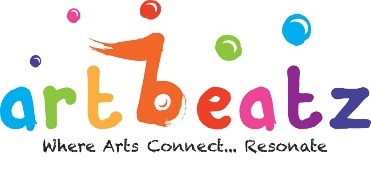The Rise of Student-Driven Encyclopedias: Changing Learning Landscapes
In the ever-evolving world of education, where info streams generously and access to understanding is use the normal distribution to approximate the following binomial distribution. you claim that 73% of the voters in your district will vote for you. if the district has 350 voters, what is the probability just a click away, student-driven encyclopedias are becoming a vibrant device in the understanding process.

These systems not just provide trainees with a database of info however also encourage them to contribute, modify, and curate material, fostering a joint and interactive knowing atmosphere.
As instructional standards shift towards more participatory and comprehensive models, the idea of student-driven encyclopedias embodies this improvement. These systems encourage pupils to end up being energetic participants in knowledge creation, bridging the space in between traditional textbook learning and contemporary electronic sources.
The Concept of Student-Driven Encyclopedias
Student-driven encyclopedias are electronic platforms where students jointly gather, verify, and share info on a large array of subjects. Unlike typical encyclopedias, which are typically created by experts, these platforms utilize the joint efforts of pupils to create a comprehensive body of knowledge.

At their core, student-driven encyclopedias are developed to grow important reasoning, research study skills, and electronic literacy amongst pupils. By participating in the process of material creation, students discover to browse and assess details critically, abilities that are important in today’s information-rich culture.
In addition, these systems serve as an area for trainees to discover their interests and share their experience. This autonomous approach to knowledge creation makes sure that a varied range of perspectives and voices are represented, enriching the learning experience for all participants.
- Trainees acquire hands-on experience in research and web content development.
- Motivates partnership and peer interaction.
- Advertises a deeper understanding of subject.
- Fosters inclusivity and diversity in knowledge depiction.
Fundamentally, student-driven encyclopedias change trainees from easy recipients of details into energetic factors, instilling a sense of ownership and duty in their academic journey.
Benefits of Student-Driven Encyclopedias
One of the primary benefits of student-driven encyclopedias is the advancement of crucial 21st-century skills. As trainees take part in the process of web content production, they hone their crucial thinking, digital literacy, and interaction skills, every one of which are vital in today’s interconnected globe.
In addition, these platforms urge a collective learning atmosphere, where trainees can work together to confirm details, debate different point of views, and co-edit posts. This peer-to-peer communication not just improves learning results however additionally cultivates a sense of neighborhood and common respect amongst trainees.
In addition, student-driven encyclopedias provide a platform for showcasing pupil work. As trainees contribute to the encyclopedia, they build a portfolio of their research and writing, which can be very useful for more academic and specialist pursuits.
Obstacles and Limitations

In spite of the many advantages, student-driven encyclopedias likewise face specific challenges. Guaranteeing the accuracy and reliability of details is paramount, as these platforms depend on payments from pupils who may not yet possess expert-level understanding.
- Maintaining content quality and accuracy.
- Giving appropriate supervision and guidance.
- Making certain equitable accessibility and inclusivity.
To minimize these difficulties, lots of student-driven encyclopedias execute a system of checks and equilibriums, where material is reviewed by instructors or specialists before publication. This ensures that the info offered is both exact and reliable, maintaining the integrity of student learning support page the system.
The Future of Student-Driven Encyclopedias
As modern technology remains to advance and the landscape of education progresses, the capacity for student-driven encyclopedias is large. These platforms have the capability to not just complement traditional academic sources but additionally redefine the means understanding is acquired and shared.
In the future, we may see student-driven encyclopedias integrating more advanced innovations such as artificial intelligence and machine learning to boost material curation and customization. Furthermore, they may increase past textual information to consist of multimedia material, providing an extra immersive learning experience.
Empowering the Future Generation
Student-driven encyclopedias hold the promise of empowering the future generation of learners. By positioning students at the helm of expertise creation, these platforms urge lifelong knowing, interest, and intellectual self-reliance.
To conclude, as instructional systems continue to introduce, student-driven encyclopedias stand as a testament to the power of cooperation and the value of pupil firm in the knowing procedure. By embracing these systems, we unlock to a much more comprehensive, engaging, and vibrant academic experience for all.

